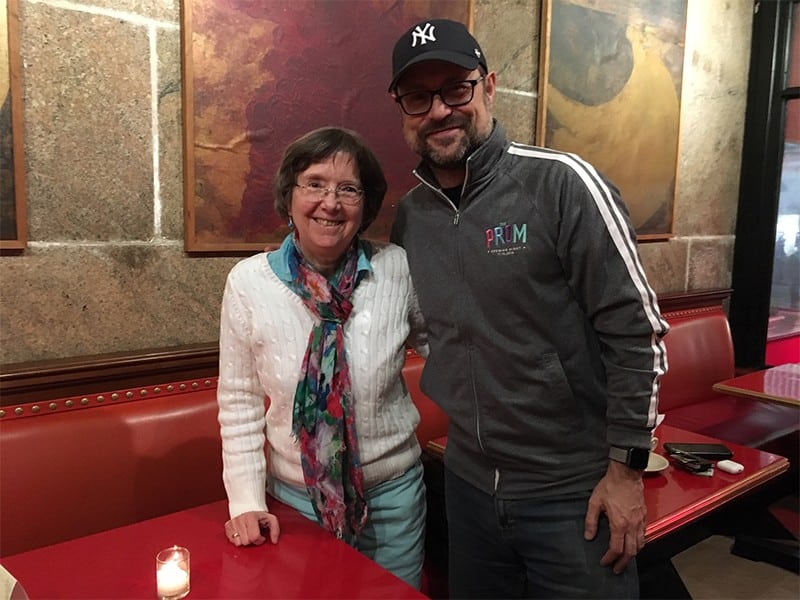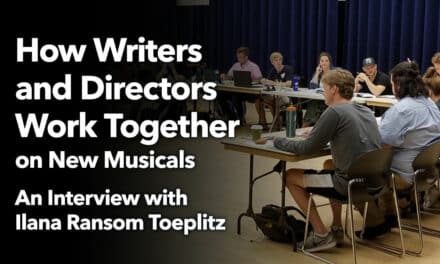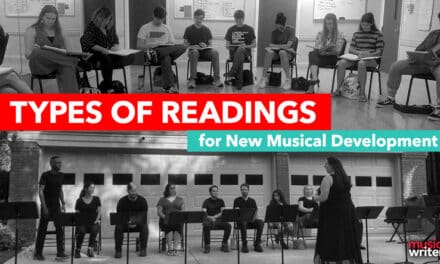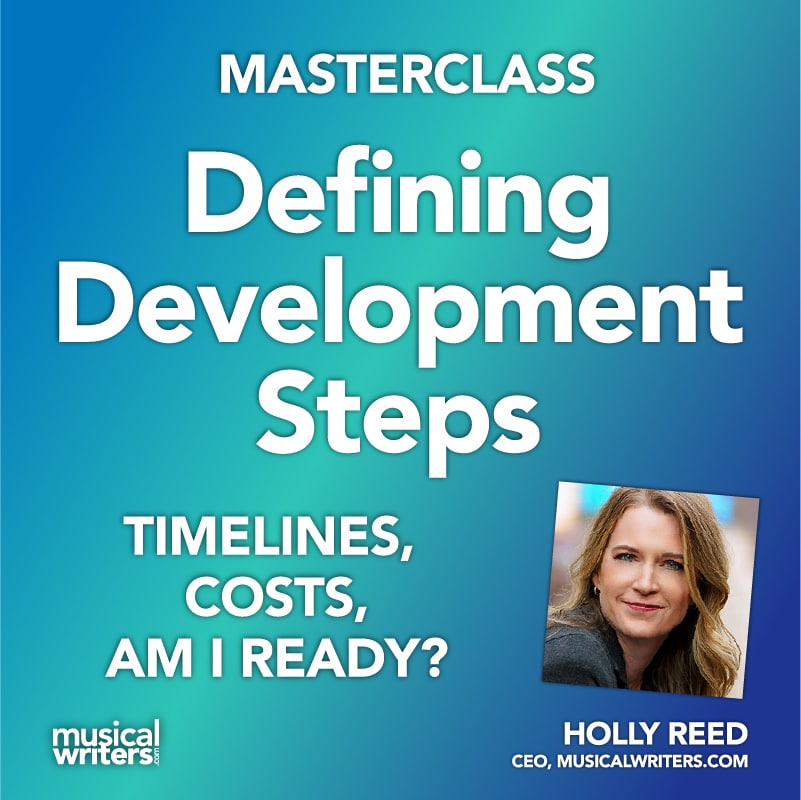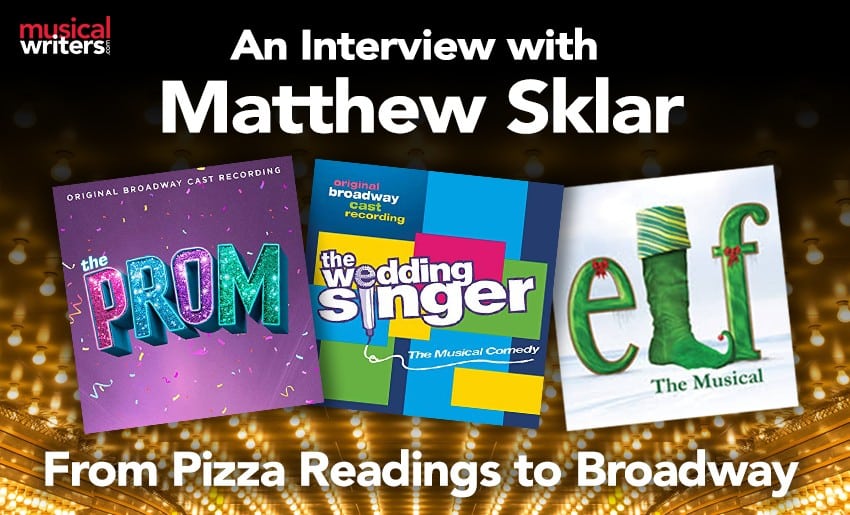
Matthew Sklar has been writing songs since childhood and turned his attention to show music at an early age. He remembers practicing with the sheet music for Pippin as a pre-teen, and he still draws inspiration from Stephen Schwartz, as well as Alan Menken, and other pop-oriented songwriters. Although he and his collaborator Chad Beguelin endured the big disappointment of having a scheduled Broadway-bound show The Rhythm Club lose its funding, their luck turned when their work attracted attention of other producers. Sklar and Beguelin now have award nominations and three Broadway shows among their credits, for The Wedding Singer, Elf, and The Prom.
After seeing The Prom myself and enjoying the cast recording, I was eager to interview Matthew, a long-time acquaintance. We met up at a Manhattan restaurant on March 8th. The Prom, which opened on Broadway to rave reviews on November 15, 2018, is an original musical based on a concept by Jack Viertel. It features a kind of collective protagonist, a group of Broadway celebrities who claim they want to help Emma (a second protagonist), a gay teen who wants to bring her girlfriend to the prom. The prom is cancelled and various quirky actions ensue.
There’s an upside and downside to creating an original show that unfolds outside of traditional formulas and is not an adaptation. As Sklar noted,
“The blessing of writing an original musical is you can go anywhere; the curse is you can go anywhere. There are an infinite amount of choices. You have to find the heart of the story.” ~Matthew Sklar
Here are a few of the points we covered in our conversation, which I edited for clarity:
Making Connections: The first Broadway show, The Wedding Singer
Matthew Sklar: The connection for The Wedding Singer was through The Rhythm Club that almost came to Broadway in 2001. We developed The Rhythm Club at the ASCAP Musical Theatre Workshop with Stephen Schwartz who was incredibly helpful getting the show on its feet. Chad and I submitted two shows in 1998: one was fully done and also The Rhythm Club on sort of a whim, and it turned out they chose that. We had to present 45 minutes of the show and we didn’t have much ready, so we wrote a lot of The Rhythm Club just for the ASCAP workshop presentation. We got a lot of feedback. Stephen was amazing. From that workshop we got commercial producers. They were people I knew and so I invited them to ASCAP saying, ‘We’re going to do a presentation of this show; I’d love to know what you think.’ The producers brought Billy Rosenfield who used to be at RCA so the three of them came. Right after that they optioned the show, and we got busy completing it. Then we did a bunch of readings and did it at the Signature Theatre in Arlington, VA. For Broadway we got as far as having a theatre booked, our artwork and billboard in Shubert Alley, and a company ready to begin rehearsals. And then the money fell through. It was awful. But one of the people who attended one of our readings was Margo Lion, and after that she approached Chad and me afterward and said, ‘I think you guys are very talented; I would love to find something to work on with you.’ …. [that eventually led to the New Line Cinema project with Margo Lion and Mark Kaufman.] New Line Cinema had the rights to The Wedding Singer movie and they thought they could possibly make it into a musical. They wanted a team that grew up in the 80s, as I did.
Carol de Giere: So, the moral of the story is to work your connections? And be in the right place at the right time?
MS: Well, that part was the lucky part, but you can draw a straight line from the ASCAP musical theatre workshop to The Prom. For every single project, I met somebody that came along for the ride or introduced me to somebody else. It’s all stepping stones.
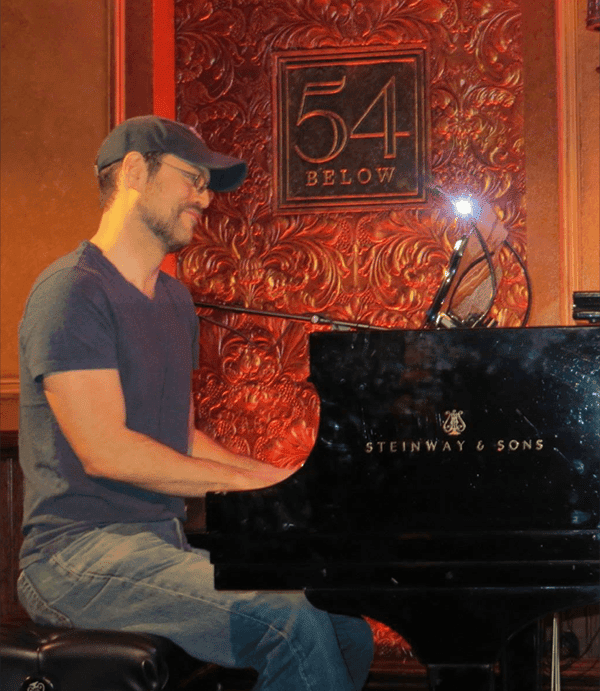
Matthew Sklar on Collaboration
CD: One thing I really like about The Prom is that even with lyrics and music being written separately, everything fits.
MS: Chad and I are in our 25th year of writing together. I think the more experience we’ve gotten, the more we’re able to not settle. When we were younger, if I wrote a tune that he didn’t totally love, he probably wouldn’t tell me. And if he wrote a lyric, where I thought ‘I’m not sure about that,’ I probably wouldn’t have told him. But the older we get and more experience we have, we trust each other [and speak up], and I think that does help…. And that was across the board with The Prom, the whole creative team, with Bob Martin who co-wrote the book, and Casey Nicholaw who directed and choreographed… I think that has been a great blessing because we are all on the same page.
CD: How do you start? Who goes first? The bookwriter probably.
MS: The bookwriter. Before we write any songs we outline at least one act, and we just figure out where songs should go and what the assignment is for each song, and maybe a title. We always ask, ‘Do you have a take on this? Do you want to start?’ so it’s kind of either way. Chad always has a rhythm in his head when he writes the lyrics first. Then I take that information and start creating a melody and accompaniment. If it’s music first, I send him a recording with me “lala-ing” the melody. We just go back and forth until we have a seamless first draft and then we present it to our partners and see if they like it.
CD: How many songs get cut along the way? Do you overwrite?
MS: We usually overwrite. We had a lot of songs for The Prom that were written early on for story points and characters that don’t exist anymore. I think we even had six or seven opening numbers. We did a lot of work.
Opening Number Woes
CD: How did you know those opening numbers weren’t the right one?
MS: Just a feeling we were getting when we were working on it. We thought we had a great one that was very funny. But the Broadway characters started out very angry and it became apparent very quickly when we did our presentation to a live audience that it was just a turn off—the audience didn’t sympathize—so we threw the whole plot point out and started over. We came up with a new idea where we put two characters in the same show that they really needed to have succeed. When it doesn’t, the audience feels for them and then we want to go with them. And that was what we learned from that lab, so that was a huge learning experience.
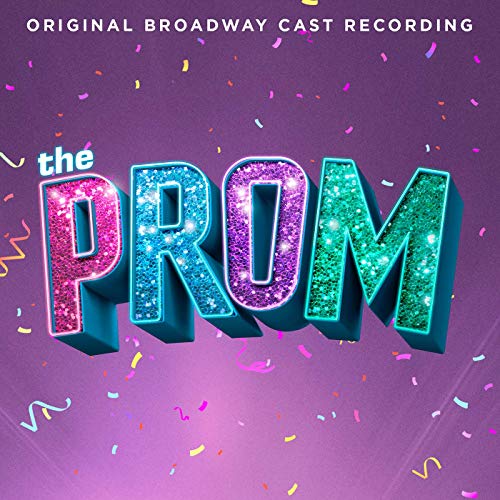
Matthew Sklar on Setting the Story
CD: You picked Indiana because….
MS: The truth is, originally we were going to do it down south, but when we were doing table readings and we did it in a Southern vocabulary it just felt a little on the nose. At the same time in Indiana, Mike Pence was the governor and he passed all these religious freedom laws that were basically allowing discrimination against gay people and we were offended by that, as many people were, and we thought, maybe we should put it in Indiana because that’s where these things are happening and then it becomes less of a North vs South thing.
Testing a Show: Working with Feedback
CD: I’m interested in how you work with feedback. Tell us about table readings and pizza readings.
MS: We usually do table readings with me at the piano singing all the songs, and then Bob, Chad, Casey and I will read the parts [aloud]. Or I’ll order pizza and say to friends, if you guys will take an hour and a half to read this out, it will help.
CD: So you give feedback to yourselves, but when you start getting feedback from readings and then go on a pre-Broadway tryout, how are you using the feedback to make it better? Do you have any tips for that?
MS: It’s just about listening. What I find is, if something isn’t working you’ll know. You’ll feel it in the audience – a paying audience especially. You’ll know when something isn’t quite landing. I like to have people I trust come see the show and see what they think. Sometimes their solutions are helpful and sometimes they’re not. But they’re always good at identifying where the problem is. And we’ve found that if more than two people that we really trust have an issue with a particular spot, then we take that very seriously and try to solve it.
If something isn’t working you’ll know. You’ll feel it in the audience – a paying audience especially. You’ll know when something isn’t quite landing. I like to have people I trust come see the show and see what they think. Sometimes their solutions are helpful and sometimes they’re not. But they’re always good at identifying where the problem is. And we’ve found that if more than two people that we really trust have an issue with a particular spot, then we take that very seriously and try to solve it.
It was very apparent when we were doing the first lab that we weren’t off to the right start, so that was our first big assignment. Then when we were in Atlanta, we had an extended previews period. We did a tremendous amount of rewriting based on audience response, and it was very helpful.
CD: Can you think of an example?
MS: One that we fixed in Atlanta was the end of Emma’s second big song, which is “Dance with You.” That’s kind of her “I Want” song and it’s a big song, and it was doing well but it was ending in an introspective way. It was getting a nice hand but not a great hand. Then during rehearsal one day Casey said, ‘I’m kind of feeling like she should really soar at the end of it.’ So in rehearsal we played around it and made it so that instead of winding down, it built up and there was a big note at the end. We put it in the next night (after it was orchestrated) and there was it a huge difference. It changed the entire trajectory of that act because all of a sudden, instead of having this quiet moment and then having to build back up again, you were already there. It was great. We love doing those things out of town.
On Writing Characters with Negative Qualities
CD: Are you comfortable writing for characters with bad qualities who make politically incorrect comments?
MS: Yeah, they have to start in a low place in order to grow. We love in a lyric the Broadway characters are saying we’re going to teach them to be more PC in Indiana, and literally the next lyric is the most un-PC things you can say because they are so unaware of what they are doing. That’s what makes them kind of loveable even though they are saying these insane things, they don’t know they’re saying them.
On Musical Variety
CD: I’ve once been told that every musical needs a Latin number. Would you say that’s “It’s Not About Me?”
MS: Yeah, in a way. It’s kind of a tribute to Evita. There are a lot of bongos and Latin rhythms.
CD: Do you consciously try to create different rhythms?
MS: I try to mix it up, really. Usually when we’re outlining an act of the show, we just want to be sure we don’t have any similar tempos next to each other. You don’t want ever to have similar sounding ballads back to back. Some shows can get away with it, but it’s hard. I always shy away from that. We always want each musical number to be different from the one that preceded it, feeling-wise and tempo-wise. It just keeps it interesting.
We always want each musical number to be different from the one that preceded it, feeling-wise and tempo-wise. It just keeps it interesting.
One last tip from Matthew Sklar
CD: Any other tips for writers?
MS: Just write and try to get your stuff heard, even if it’s just for yourself. If you’re writing a song, invite a singer friend over and teach it to them and hear it back.
Enjoy highlights from THE PROM:
Matthew Sklar wrote the music and co-wrote vocal arrangements for the currently running Broadway musical The Prom. He is the Tony, Emmy and Drama Desk Award-nominated composer of the Broadway musicals Elf and The Wedding Singer (Tony nomination for Best Original Score, Drama Desk Award nomination for Outstanding Music). He was nominated for a Primetime Emmy Award for Outstanding Music Direction for the critically acclaimed NBC stop-motion animated TV special “Elf: Buddy’s Musical Christmas.” Additional TV/film credits include “Sesame Street,” “Wonder Pets!” and PBS’s “American Masters.” Awards include the ASCAP Foundation Richard Rodgers New Horizons Award, the Gilman/Gonzalez-Falla Theatre Award and the Jonathan Larson Performing Arts Foundation.

